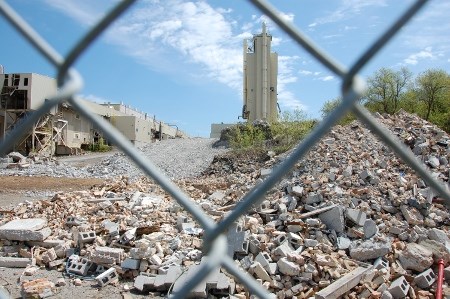The former head of the Atlantic Canada Opportunities Agency (ACOA) is not impressed with the Harper government's lack of economic policy for Northern Ontario.
After reading the Nov. 19 Throne Speech, Dennis Wallace, Kenora's economic development chairman, was not optimistic any new investment is forthcoming for struggling forestry-dependent communities like Kenora and their efforts to pursue new economic opportunities.
With Ottawa and Queen's Park being pressured to bail out the Big Three automakers, Wallace saw "very, very little (in the speech) that gives hope in help for diversification."
Kenora has lost hundreds of forestry jobs including the closure of its biggest private employer, the Abitibi-Consolidated mill in 2006.
"There's a 50-foot hole where our pulp and paper mill stood."
Wallace said the speech suggests there will be marketing and innovation help for forestry, but for Kenora, most companies are, either "at the edge of collapse" or gone altogether, "this offer is thin gruel."
Kenora is shifting its economy toward tourism, Baby Boomer retirement living and small business attraction. That requires new investment for a four-lane highway, seed money for small business start-ups, and beach, trail and waterfront improvements.
Wallace said no mention was made in the speech's text of tourism and Northern Ontario was left out in favour of supporting regional industries.
"Northern Ontario is as large as Atlantic Canada, but it seems to be terra incognita for the Harper government."
Wallace said Industry Canada policy prohibits direct investment in forestry, but the government appears willing to prop up the automotive and aerospace sector. "One could draw from this that some regions in Canada will get direct support to buoy up their industrial base while others, principally Northern Ontario, will continue to fight a losing struggle."
Wallace said keeping the status quo at FedNor just won't do.
In an early-November interview with Northern Ontario Business, new Industry Minister Tony Clement, who oversees the FedNor program, wasn't making any promises to beef up the development agency's budget with multi-year funding commitments.
"I'm not ruling anything out," said Clement, "but at the same time it's important to me to signal there's not a big pot at the end of the rainbow that's going to be distributed anytime soon."
Individual community development projects will be examined on a "case-by-case basis."
To Wallace, those comments suggest Tony Clement is the "Marie Antoinette of Northern Ontario, and he expects cutbacks at FedNor which will only delay the economic recovery of many northwestern Ontario communities.




